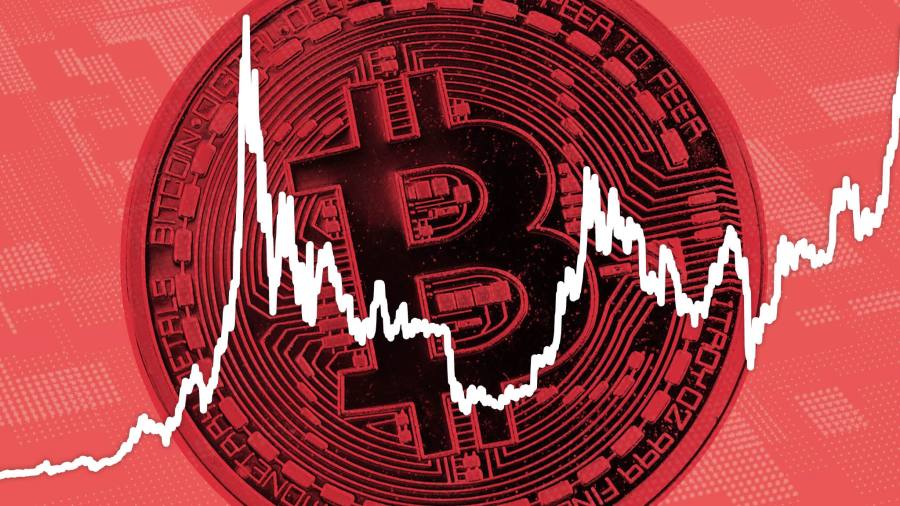Bitcoin in red on October 17, but remains above $60,000 following the approval of a US ETF fund.
On the 17th of October, cryptocurrency values were in the red. The worldwide cryptocurrency market capitalization is Rs 185.34 lakh crore, down 0.36 percent from the previous day, while the entire crypto market volume is Rs 6,90,324 lakh crore, down 29.89 percent.
Bitcoin's price is currently $60,681 (Rs 47,53,048), and its market share is 46.40 percent, down 0.14 percent from the previous day.
Nonetheless, the wild swings in this currency this year have kept investors interested. The world's largest cryptocurrency has been on a rollercoaster ride, from a low of under $30,000 (22.51 lakh) in May-June to a peak of $64,000 (48 lakh) in April. Bitcoin, on the other hand, has recovered every time it has lost value, giving investors hope for its long-term future. The latest increase has fueled speculation that Bitcoin is on the verge of an extraordinary rally.
On Saturday, Bitcoin surpassed $60,000 for the first time since April, thanks to rising expectations that American regulators will approve the first US futures exchange-traded fund for the cryptocurrency.
At 2050 GMT, the digital currency was up more than 40% from a month ago, reaching $62,253, according to Bloomberg News, the US Securities and Exchange Commission may authorise the ETF to trade as early as next week.
Since 2013, the SEC has rejected proposals to establish a Bitcoin Exchange Traded Funds (ETF).
"The SEC's approval of a Bitcoin Bitcoin Exchange Traded Funds (ETF) is a watershed event for the crypto industry since it might be the catalyst for attracting the next wave of crypto investors," said Edward Moya, senior market analyst at OANDA.
An Exchange Traded Funds (ETF) is a financial vehicle that can hold a variety of assets and can be traded on a stock exchange like other securities. A futures Exchange Traded Funds (ETF) is one that will buy or sell a product at a predetermined price at a later date.
"Before investing in a fund that includes Bitcoin futures contracts, make sure you carefully assess the possible risks and advantages," the SEC wrote on one of its Twitter accounts, fueling expectations of an impending approval.
The Exchange Traded Funds (ETF) would cap off a memorable year for the world's most popular cryptocurrency, which reached a new high of $64,870 in April and became legal tender in El Salvador is the first country in the world to have done so.
Meanwhile, China has cracked down on cryptocurrency trade and mining. Cryptocurrencies are formed by solving complex equations, which takes a lot of energy.
U-turn by the SEC
The proposals presented by financial firms ProShares and Invesco are based on futures contracts, according to Bloomberg, which cited unidentified people familiar with the subject. Previous Bitcoin Exchange Traded Funds (ETF) applications that the SEC rejected were based on futures contracts.
The proposals were filed under mutual fund rules that, according to SEC Chairman Gary Gensler, give "substantial investor safeguards", the news agency reported.
"This is a significant milestone for the crypto world because it will allow many investors who have been on the fence about investing in crypto to do so in more traditional ways," said Walid Koudmani, an analyst at the XTB online trading platform.
An ETF would reassure investors "regarding previously associated risks such as a lack of legislation and the possibility of having their wallet hacked," stated Koudmani.
Other nations have ETFs that include Bitcoin, but having one in the United States would elevate the cryptocurrency to new heights.
"In America's case, it's the largest, most important market," Charlie Erith, CEO of ByteTree Asset Management, a cryptocurrency specialist, told AFP. "To date, they (conventional investors) haven't had a straightforward vehicle in which to invest in Bitcoin."
"The impact on the market can be overblown," Erith said, "you might see a short selloff but it won't be meaningful."
"In the long run, that's a significant development," he noted, "since it suggests that authorities are becoming more comfortable with citizens having cryptoassets."

